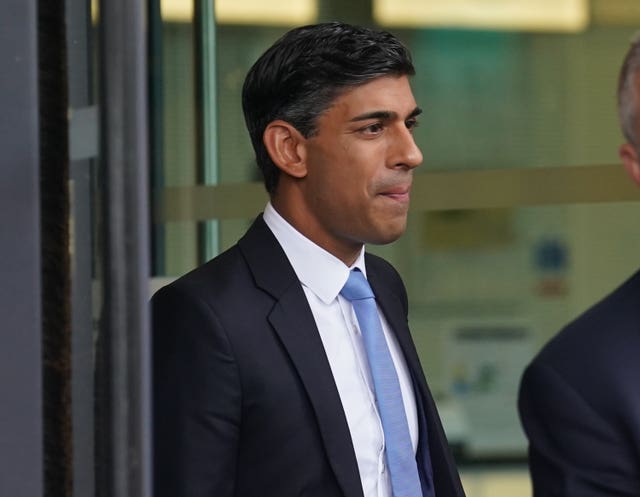The national living wage is set to increase to at least £11 an hour from next April, with Chancellor Jeremy Hunt expected to confirm the move in a speech to the Tory party conference on Monday.
The Conservatives said the move will benefit two million of the lowest paid, with Mr Hunt also expected to announce that ministers will look again at the benefit sanctions regime in a bid to get the unemployed back into work.
The Government had already set a target for the national living wage to reach two-thirds of median hourly pay by October next year.
The Low Pay Commission estimates the rate required to meet that target should be between £10.90 and £11.43, with a central estimate of £11.16.
Mr Hunt is expected to say: “Today I want to complete another great Conservative reform, the national living wage.
“Since we introduced it, nearly two million people have been lifted from absolute poverty.
“That’s the Conservative way of improving the lives of working people. Boosting pay, cutting tax.
“But today, we go further with another great Conservative invention, the national living wage.
“We promised in our manifesto to raise the national living wage to two-thirds of median income – ending low pay in this country.
“At the moment it is £10.42 an hour and we are waiting for the Low Pay Commission to confirm its recommendation for next year.
“But I confirm today, whatever that recommendation, we will increase it next year to at least £11 an hour.
“A pay rise for over two million workers.
“The wages of the lowest paid over £9,000 a year higher than they were in 2010 – because if you work hard, a Conservative Government will always have your back.”

Prime Minister Rishi Sunak said the Government is “sending a clear message to hardworking taxpayers across the country – our Conservative Government is on your side”.
The Chancellor will also warn that things have gone in the “wrong direction” since the pandemic when it comes to people out of work.
Efforts to encourage parts of the population back into the workplace, in a bid to boost productivity, have been an ongoing concern for ministers.
Mr Hunt and Work and Pensions Secretary Mel Stride are expected to use November’s Autumn Statement to set out proposals that would make it harder for people to claim benefits if they refusing to take “active steps” to move into work.
“I am incredibly proud to live in a country where, as Churchill said, there’s a ladder everyone can climb but also a safety net below which no-one falls,” Mr Hunt will say.
“But paying for that safety net is a social contract that depends on fairness to those in work alongside compassion to those who are not.
“That means work must pay, and we’re making sure it does. From last year, for the first time ever, you can earn £1,000 a month without paying a penny of tax or national insurance.
“But since the pandemic, things have being going in the wrong direction. Whilst companies struggle to find workers, around 100,000 people are leaving the labour force every year for a life on benefits.
“As part of that we will look at the way the sanctions regime works. It is a fundamental matter of fairness.
“Those who won’t even look for work do not deserve the same benefits as people trying hard to do the right thing.”
